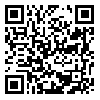The aim of the present study was to investigate the role of cognitive flexibility in predicting the hopelessness and resilience among university students. 277students of Shiraz University participated in the present study via cluster sampling method during the fall semester of the 2010- 2011 academic year. The participants completed the items of Cognitive Flexibility Inventory, Beck Hopelessness Scale, and Connor and Davidson Resilience Scale. To analyze the data, the statistical methods of Pearson correlation coefficient and simultaneous multiple regression analysis were conducted. The results showed that Control subscale could negatively predict the total score of hopelessness and all of its subscales. Moreover, alternatives control subscale negatively predicted the total score of hopelessness and the hopelessness subscales of disappointment in achieving the desired and negative expectations about future. Alternatives for human Behaviors subscale predicted the hopelessness subscale of future uncertainty. Simultaneous multiple Regression analyses in predicting resilience indicated that Control and Alternatives subscales predicted the resilience. It is concluded that cognitive flexibility has the ability to predict the hopelessness and resilience. Thus, educating cognitive flexibility via cognitive- behavior therapy (CBT) can decrease hopelessness and increase the resilience among clients.
Accepted: 2016/06/12 | Published: 2016/06/12
| Rights and permissions | |
 |
This work is licensed under a Creative Commons Attribution-NonCommercial 4.0 International License. |



